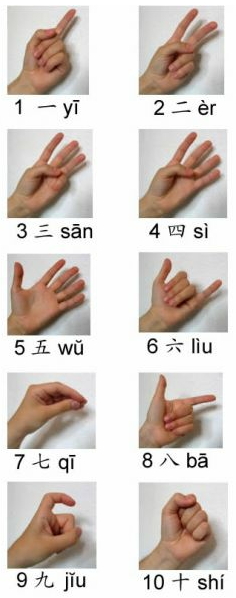
Numerology has always been an important consideration to Chinese. When a Chinese buys a house or a car he makes sure its number is auspicious, because an auspicious number is believed to bring good fortune and an inauspicious number ill luck.
Some numbers are more significant than others and some combine harmoniously with others while causing disharmony when used with some other numbers. Odd numbers (1, 3, 5, 7, 9) are yang while even (2, 4, 6, 8) yin. When a yin number is combined with a yang number it forms a balanced number pair.
The odd numbers are generally less favourable than the peers because Chinese consider that the good things must be always repeated. So, it is needed to offer two presents when people are invited to a dinner or to a birthday. The Chinese also never choose the second day of the month calendar to organize funeral. Indeed, they consider that the burial is a very sad event and that it should not thus arrive twice in a brief interval of time. If a sad event takes place the second day of the month it means that it will reproduce a second time during the day.
The role of numbers in determining luck has a long history in Chinese culture. For example, it is said that in the Forbidden City there are 9999 rooms. When buying a house or choosing a telephone number or a license plate number for one's automobile, the choice is generally made with an eye to the perceived luckiness of the available numbers. The number 2 is considered lucky because 'all good things come in pairs', it has been observed. The number 6 is an example of the sound byte association mentioned above: "six" is pronounced "liu" in Mandarin Chinese, which sound byte is close to the sound byte for the Mandarin Chinese word which means "flowing, smooth, or frictionless", therefore the number 6 is considered very lucky, especially where it occurs in multiples.
We recommend:
